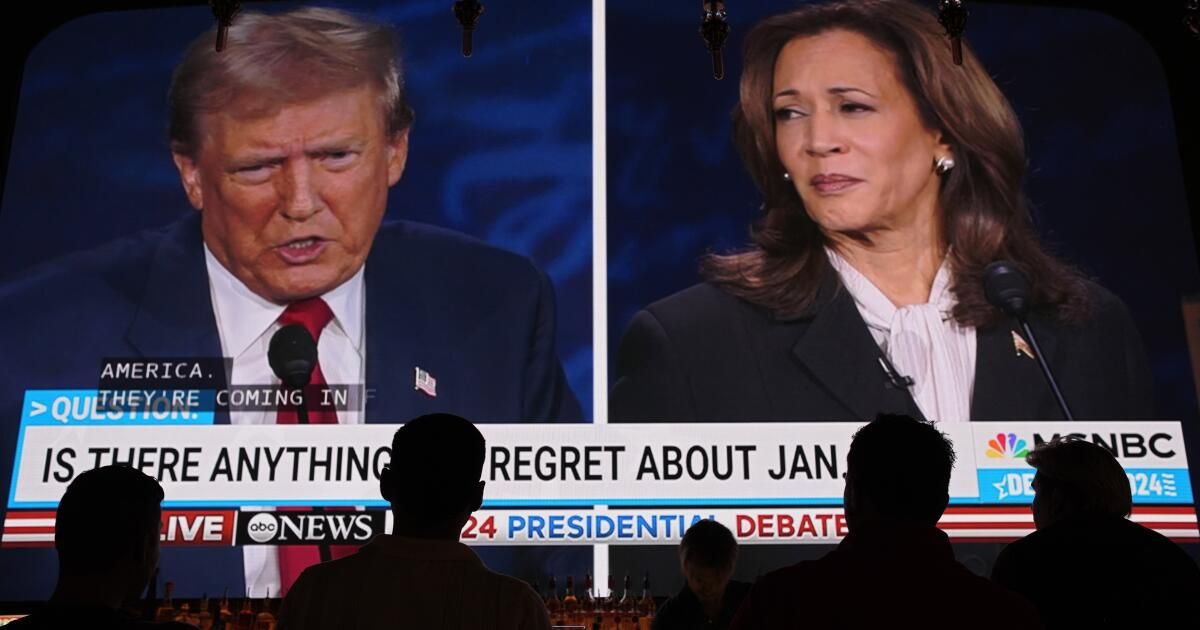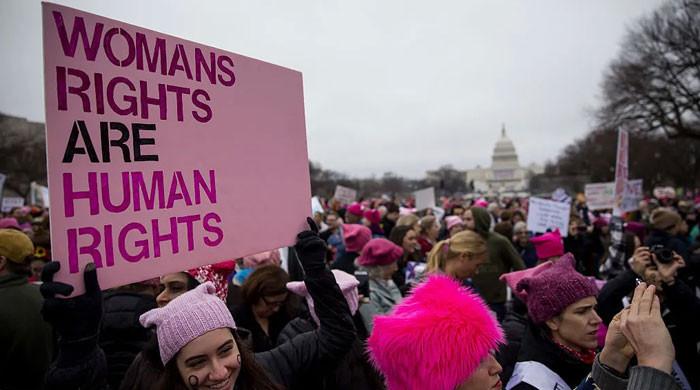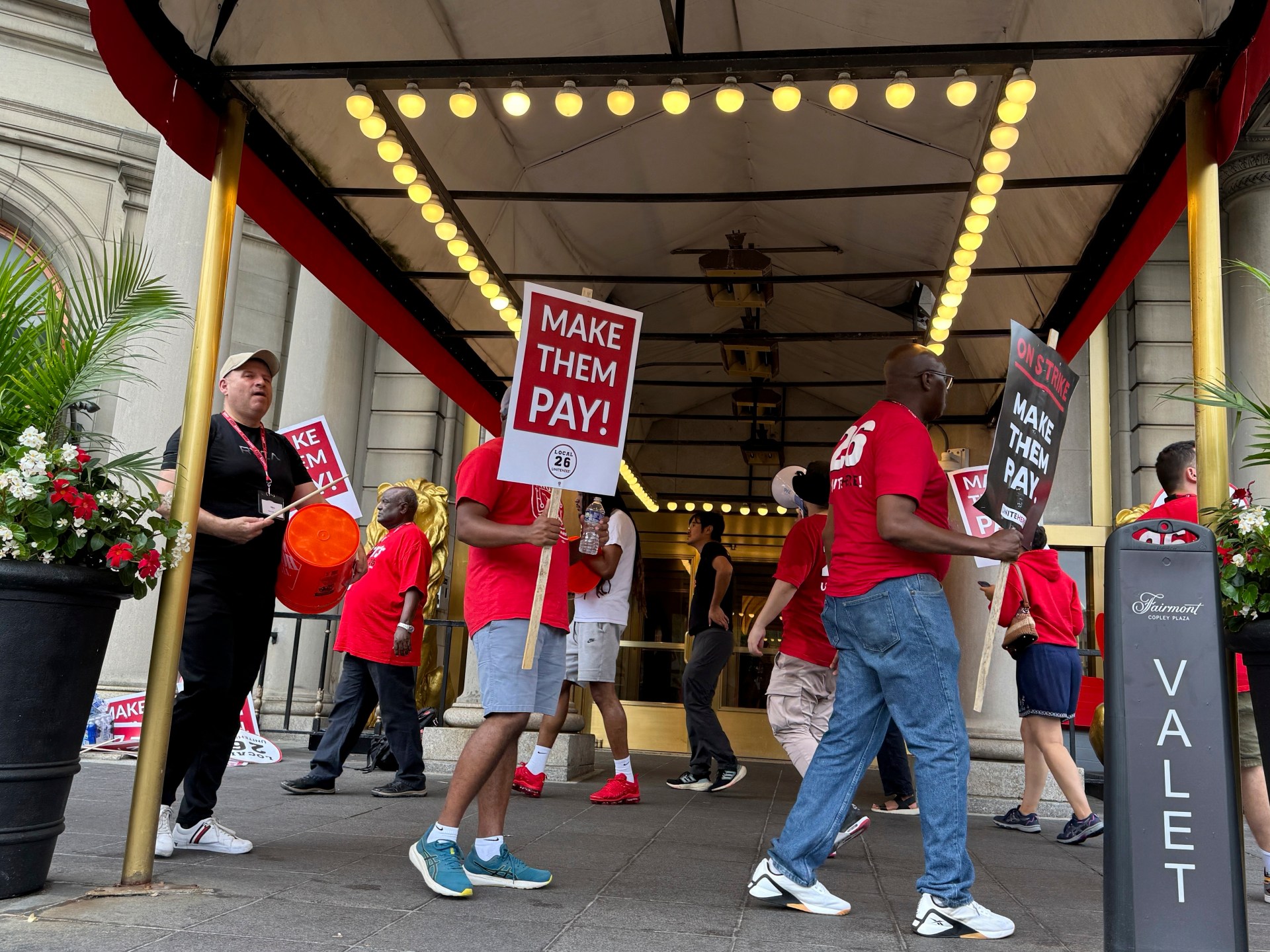Her microphone may have been muted when it wasn't her turn to speak, but Vice President Kamala Harris' facial expressions spoke volumes during her debate against former President Trump.
The arched brow, hand on chin, sympathetic look and dismissive shake of the head were particularly effective in communicating disgust and amusement when his opponent claimed that immigrants were eating their neighbors' pets and that newborn babies were being killed in post-partum abortions.
Polls taken after the debate show that viewers overwhelmingly felt Harris had outperformed her competitor, and Trump announced that he would not hold a second debate with Harris. But, according to The Way It's Always Been Done, Harris is approaching this election the wrong way.
“If she wants to win, Harris needs to train her face to not respond,” Republican pollster Frank Luntz wrote during Tuesday’s debate. “That feeds into a female stereotype and, more importantly, risks offending undecided voters.”
Warning to undecided and sensitive voters: the topic of Harris and her inexperienced face may cause discomfort. Read on at your own risk.
Former President Trump and Vice President Kamala Harris shake hands before their presidential debate on Tuesday.
(Alex Brandon/Associated Press)
Historically, a good poker face has been as instrumental in looking presidential as a firm handshake or a stiff suit. Just take a look at the portraits on U.S. currency. And to be clear, the term was not coined by Lady Gaga. It's a description of “an inscrutable face that reveals not a trace of a person's thoughts or feelings.”
Her poker face may have helped legitimize legions of men who ran for office before her, but despite 235 years of presidential stoicism across 46 leaders, Harris does not derive her power from impassivity. On the contrary, the risky maneuver of showing what she feels has turned out to be one of her great virtues.
During the debate, her body language and expressions helped convey her passion and determination around hot-button issues like the abortion ban and immigration. And, as evident in the countless memes of the debate now flooding social media, her demonstrative attitude left Trump perplexed.
When Harris leaned in and suggested that spectators attend her rallies to witness firsthand her boring dialogue and attendees leaving early, you could almost see smoke coming out of her ears. She shot him quizzical glances when he said something patently absurd, seemed unimpressed when he hurled insults. She easily struck a commanding stance, looking directly into the camera to address the spectators, as if she were narrating the event. This was Harris leaning into her own gregarious nature while deploying tactical restraint as needed.
Harris’s expressive facial reactions signal progress for those of us old enough to remember when women were banned from wearing pantsuits in the Senate (Barbara Mikulski and Carol Moseley Braun did so anyway in 1993). Laughing, smiling too much or displaying expressions of empathy, disappointment or support at work was interpreted as weakness, immaturity or indecisiveness.
Showing emotion in the workplace was (and still is) seen as a career-killer for women aspiring to leadership positions. The unspoken rule: When in doubt, act like the men at the table, even if the company dress code requires you to wear a skirt.
No matter how far we think we’ve come, those attitudes remain a very real part of how Americans choose their leaders. A 2019 study from Georgetown University’s Center on Education and the Workforce found that about 13% of men and women have doubts about women’s emotional suitability for politics.
Put another way, that's one in eight people. It's true that Hillary Clinton won the popular vote by 2.9 million votes in the 2016 election, but that may have had more to do with fear of Trump's emotional instability than with a change in attitude toward a woman in the Oval Office.
When Harris has tried to keep a poker face, she has conveyed less confidence and power and, frankly, she has seemed uncomfortable. Last month's CNN interview was a case in point, where she seemed too controlled, too restrained.
That’s not to say Harris is the best at being a loose cannon. She’s not, and besides, that’s Trump’s job. Still, she’s had no shortage of advice on how to win the presidency. It’s come from every major media outlet, every minor media outlet, every pundit and politician from Joe Manchin to Chris Christie. Much of it has focused on how to behave.
But if Tuesday’s debate is any indication, she doesn’t need to hear any of that. As Emily Favreau wrote in X, “She has mastered the expression of simultaneous pity and disgust, and every woman knows that’s *the* most important combination.”












